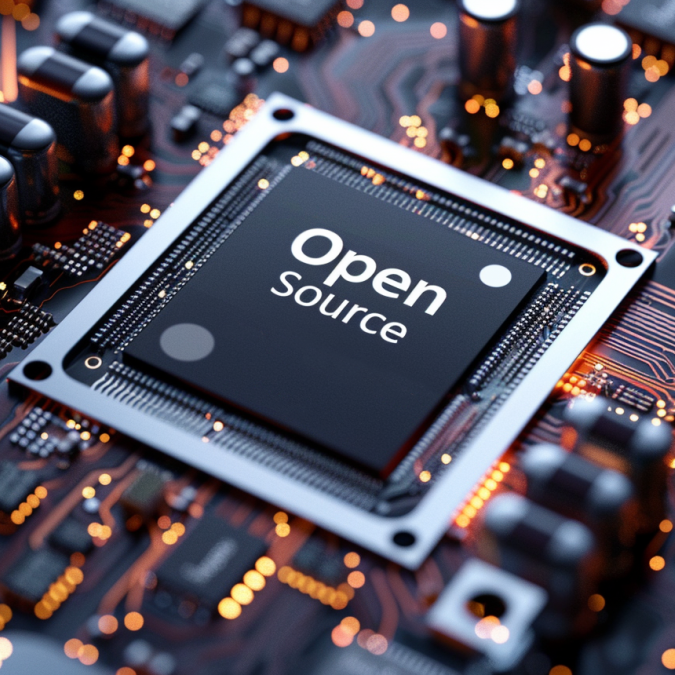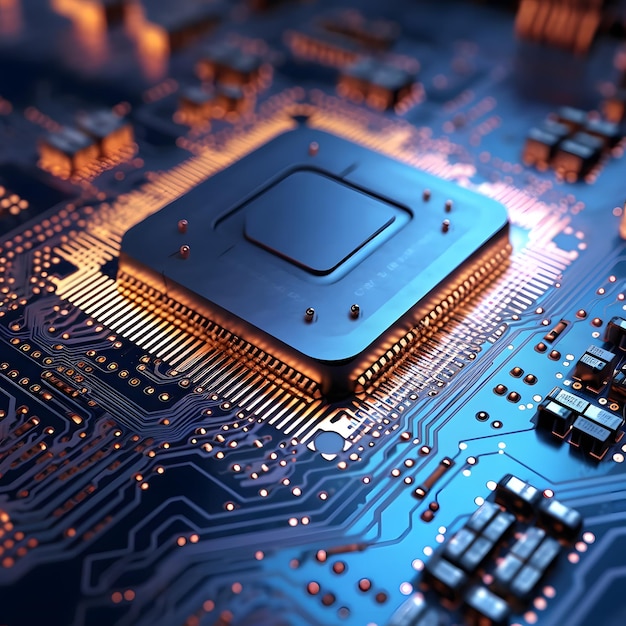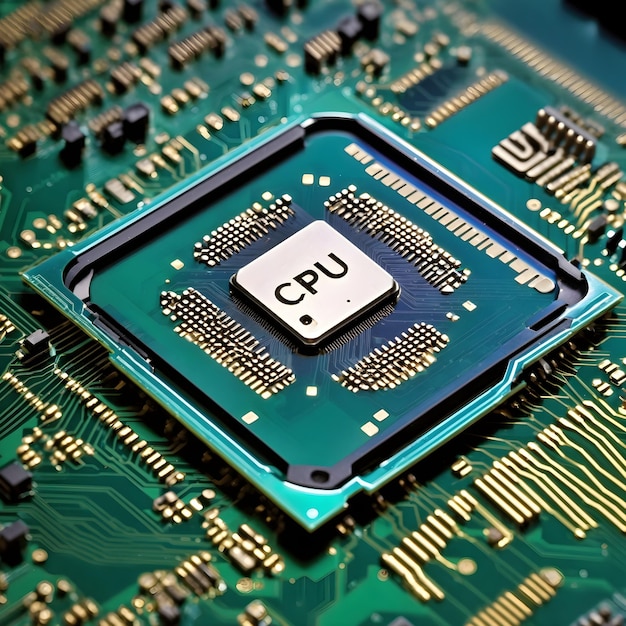Introduction to Computer Chips
Computer Chips are the unsung heroes of our digital era, seated at the heart of countless gadgets and industrial tools. Explore the pivotal role of chips in computing. Understand how these silicon wonders drive technology that powers our everyday lives.
What Are Computer Chips?
Computer chips, also known as microchips, are tiny components that perform data processing and storage tasks. Made primarily of silicon, these chips house billions of miniature transistors that work together to execute complex computations.
The Role of Chips in Modern Technology
Chips are crucial in a range of devices, from smartphones to supercomputers. They are the brains of digital devices, managing tasks and enabling advanced features that make our devices smart.
The Manufacturing of Computer Chips
The creation of computer chips is a sophisticated process involving precision engineering and high-tech facilities. These tiny powerhouses start from one of the most abundant materials on earth: sand.
From Sand to Silicon: The Journey Begins
The first step in creating a computer chip is to extract the pure element silicon from sand. Through a smelting process, sand is melted down and refined to produce silicon ingots, which are then sliced into thin wafers ready for further processing.
Photolithography: The Art of Circuit Design
Using a method known as photolithography, these silicon wafers become the canvases on which intricate circuits are designed. Layers of sensitizing chemicals, applied to the wafers, allow for the detailed micro-circuit patterns to be etched using beams of ultraviolet light.
Ion Implantation and Oxidation: Detailing the Chip
After etching the circuit designs, ion implantation is performed. It alters the electrical properties of silicon, making it more conductive in certain areas. This method, along with the oxidation process, is critical to establish the complex circuitry of the chip.
Layer Stacking and Circuit Complexity
By stacking multiple layers, the complexity of the circuits is increased, allowing for enhanced capabilities and more powerful computing potential. Each layer must be aligned with microscopic precision, showcasing the marvel of modern engineering that lies in every chip.
This meticulous process of turning sand into a functional computer chip showcases the miracles of modern manufacturing. With each step, from photolithography to layering, the chip evolves into a component capable of powering the digital age.
Types of Computer Chips
Understanding the various types of computer chips is critical as they cater to different computing needs. Here, we examine the most common types.
CPUs: The Brains Behind Computing
CPUs, short for Central Processing Units, perform core processing functions. They execute program instructions by performing basic arithmetic, logic, and input/output operations. CPUs are integral in personal computers, servers, and other devices requiring high-speed data processing.
Mobile Device Chips: Portable Powerhouses
Chips designed for mobile devices manage power consumption and space constraints effectively. They must be compact, energy-efficient, and powerful enough to handle multiple applications, connect to networks, and process sensor data.
ASICs and SoCs: Specialized Efficiency
ASICs, or Application-Specific Integrated Circuits, are customized for specific tasks. These chips provide optimal performance for applications like cryptocurrency mining or digital signal processing. SoCs, or Systems on a Chip, combine several computer components into a single chip, maximizing space and power efficiency, prevalent in smartphones and tablets.
Memory Chips: The Essence of Storage
Memory chips are vital for data retention. RAM, or Random Access Memory, allows for temporary data storage for quick access by the CPU. Permanent storage options like flash memory found in SSDs and USB drives rely on specialized memory chips.
These different types of chips underline the diverse range of functions that modern electronics perform. From executing complex programs to storing vast volumes of data, computer chips are the foundational elements enabling today’s digital capabilities.
Computer Chips in Action
Powering Everyday Electronics
Computer chips are everywhere, silently working inside our favorite gadgets. In phones, laptops, and even microwaves, chips are the silent performers powering operations. Their role is simple yet vital: manage data, process instructions, and I/O tasks swiftly. The complex circuitry etched into each chip translates into seamless user experiences, like quick app launches and responsive touchscreens.
Driving the Automotive Industry
Modern cars are like computers on wheels, thanks to chips. These chips oversee safety features, infotainment systems, and engine controls. As cars advance, chip sophistication grows, enabling features like autopilot and connectivity. This synergy of cars and chips is guiding the future of transportation.
Revolutionizing Industrial Machinery
In factories, computer chips boost efficiency and precision. Robots with chips perform repetitive tasks flawlessly. They’re central to automation, making production lines smarter and faster. Chips also help in proactive maintenance, predicting machine failures before they occur, minimizing downtime.
The Backbone of Computing Devices
Chips serve as the computing core in many devices. Servers and data centers depend on chips for processing vast amounts of data. In gaming consoles, chips deliver the graphics and speeds gamers crave. The internet, cloud computing, and big data all rely on the relentless power of computer chips. From simple servers to complex AI systems, chips underpin the fabric of our digital realm.
Future of Computer Chips
As digital demands grow, the future of computer chips looks both promising and challenging.
Advancements and Innovations
Innovations in chip technology continue to break barriers. Researchers are developing smaller, faster, and more energy-efficient chips. These advancements include 3D stacking to increase transistor density and quantum computing chips that can perform complex calculations much faster than current computers. New materials like graphene are also being explored, potentially leading to even greater leaps in performance.
Challenges Ahead in Chip Manufacturing
Alongside technological breakthroughs, the chip industry faces considerable obstacles. The complexity of advanced chip designs requires expensive manufacturing processes. Maintaining the rapid pace of improvement seen in past decades is difficult due to physical limits of silicon-based chips. Additionally, global supply chains can be volatile, impacting the availability and cost of chips.
The Role of Computer Chips in Emerging Technologies
Computer chips are integral to emerging technologies such as artificial intelligence (AI) and the Internet of Things (IoT). AI chips specially designed to handle machine learning tasks are becoming increasingly important. Meanwhile, chips enabling IoT devices contribute to a more connected world. Smart homes, health monitoring gadgets, and efficient energy grids are just a few areas where the role of chips is expanding.
Why Understanding Computer Chips is Essential
The Impact on Daily Life and Technology
Understanding computer chips is vital for grasping how our digital world functions. These chips are in every device we use, from phones to cars. Knowing about chips helps us appreciate the innovation behind our everyday tools. It also sheds light on tech advances that shape our lives.
Educational Importance and Coding Literacy
Learning about computer chips is key for students and coders alike. It lays the foundation for coding literacy and sparks interest in technology careers. Knowledge of chips can also inspire future innovation in tech education. It prepares students to create not just use technology.
The Continual Evolution of Digital Devices
Computer chips are always improving, making devices smarter and faster. As chips evolve, they bring new features to our gadgets and systems. This constant progress impacts how we live and work. Keeping up with chip technology is crucial for anyone in the tech industry. It lets us adapt to changes and foresee what’s next in the digital evolution.



